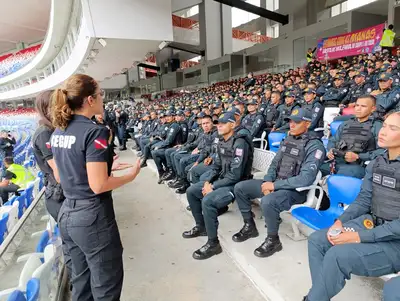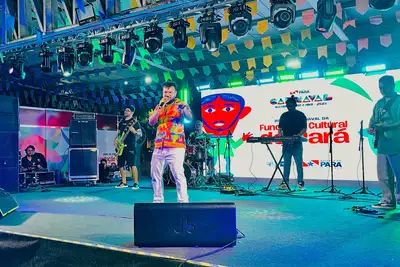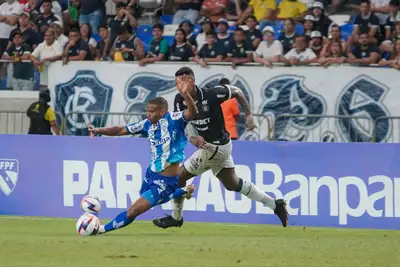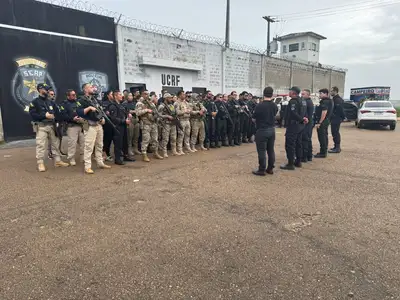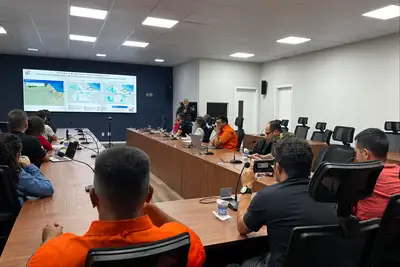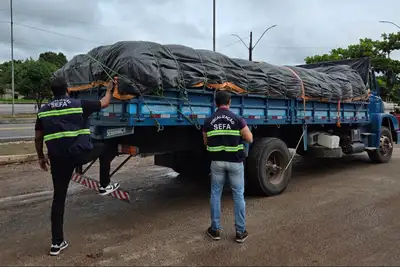State Emergency Room warns of risks of ingestion and aspiration of foreign bodies
Health unit specialists emphasize the need for constant supervision during feeding and play, as well as quick recognition and response to signs of bronchial aspiration
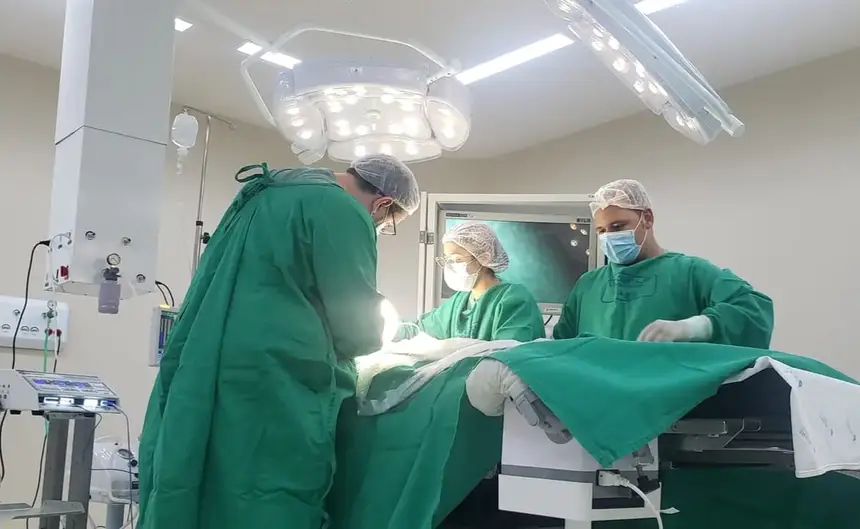
In less than 15 days, the Dr. Roberto Macedo Emergency Room, located on Avenida Augusto Montenegro in Belém, performed three tracheoscopy and bronchoscopy procedures to remove foreign bodies in children. On the night of Monday (6), another child had her life saved with airway obstruction relief, by removing a foreign body.
Seven-year-old Anahí Victória Sampaio Mendes, a resident of the municipality of Marabá in southeastern Pará, was admitted to the state pediatric emergency room after aspirating a pen cap from a series of coloring books, which are widely used, especially by children.
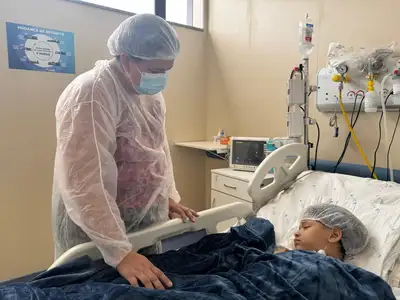
Beatriz Souza Sampaio, Anahí's mother, reported that her daughter put the pen cap in her mouth and did not even notice the aspiration of the object. But when the symptoms of tracheal obstruction appeared, the girl was immediately taken for medical care in Marabá, and due to the severity of the case, she was urgently referred to the Thoracic Surgery Service (SCT) of PSRM.
“I feel very relieved and grateful first to God, then to the doctors, nurses, and nursing technicians involved in my daughter's surgery. I also thank all the professionals in the ICU, as they are attentive and dedicated. Now, we just have to wait for the recovery process so that we can return to our city with the victory that God has given us through this hospital,” she added.
According to thoracic surgeon Luiz Arraes, coordinator of the SCT and responsible for the surgery, the object aspirated by the child was posing a choking risk due to airway obstruction. "The cap, seemingly small, was completely occupying the circumference of this child's airway, and the risk of an acute obstruction stopping Anahí's breathing was extremely high," assured the specialist.
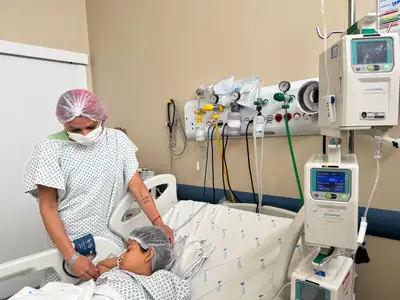
Increased Attention - Recently, Safira Heloisa Lopes da Costa, 9 years old, a resident of the Marambaia neighborhood in Belém, was admitted to the pediatric emergency room after accidentally aspirating a temporary tooth, known as a "milk tooth." The case required surgical intervention, a flexible and rigid bronchoscopy, performed by thoracic surgeon Manuela Ortiz.
“Parents or guardians of children need to be alert to warning signs if the child shows sudden choking, persistent cough, difficulty breathing, wheezing, or hoarseness without apparent cause. In these cases, it is necessary to seek medical attention immediately,” advised the surgeon.
“My daughter was referred from another hospital that could not resolve the situation. At PSRM, she was not only well received and well cared for, but her life was saved. We can only thank the hospital for performing this procedure, which is rarely done here in our capital. The ICU team is also very attentive,” said Ellen Conceição Batista Lopes, Safira's mother.
The procedures are performed with the aid of rigid and flexible bronchoscopes for the proper removal of foreign bodies.
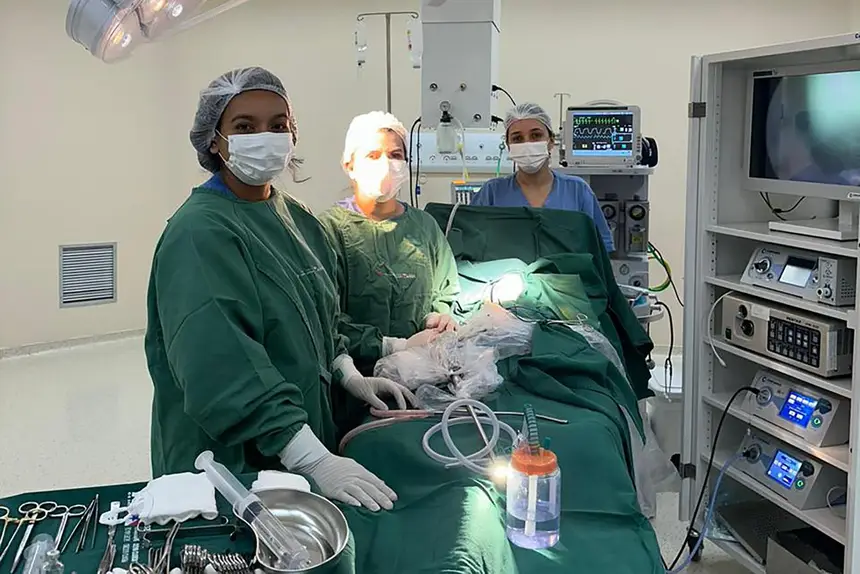
Preventive Guidelines
- Avoid offering risky foods, such as peanuts, popcorn, pits, hard candies, large pieces of meat;
- Be cautious with fish bones, a food commonly consumed by children in Pará;
- Cut food into small pieces and always supervise the child while eating;
- Avoid toys with detachable parts for children under 3 years old;
- Keep coins, buttons, small batteries, and pen caps out of reach, and
- Organize the house so that small objects are not within the child's reach.
Nails, coins, small toy parts, fragments of electronic devices (cell phone batteries), paper stapler staples, and even computer electronic components are on the list of foreign bodies that lead children to the pediatric emergency room of the Emergency Room.
As a primary prevention measure to avoid or minimize accidents with foreign bodies, the thoracic surgery team at PSRM advises constant supervision during feeding and play involving small objects, as well as quick recognition and response to signs of bronchial aspiration (sudden strong cough, inability to breathe, silent crying, stridor, and cyanosis - bluish discoloration of the skin and mucous membranes caused by insufficient oxygenation of the blood), in addition to seeking immediate medical attention if there is suspicion of persistent aspiration.
“The medical specialty of thoracic surgery plays a fundamental role in specific cases that require rapid intervention, which only specialist professionals have the skill to perform these procedures in a timely manner, providing a better response for the patient, especially regarding their clinical response, with greater speed in resolving the case,” emphasized the general director of PSRM, Carlos Vinícius Ribeiro Quadros.
Service: PSRM offers urgent and emergency care in the Metropolitan Region of Belém, mainly in districts and neighborhoods surrounding Avenida Augusto Montenegro, where the health unit is located, offering 119 beds among emergency services (adult and pediatric), hospitalizations, and ICUs, as well as six surgical rooms equipped for medium and high complexity procedures, including minimally invasive ones, such as videolaparoscopies, which reduce recovery and hospitalization time.
Managed by the Acqua Institute, in partnership with the State Department of Public Health (Sespa), PSRM provides clinical Urgent and Emergency care, including critical cases, in general surgery, vascular, pediatric, thoracic, bucomaxillofacial, and neurosurgery.



